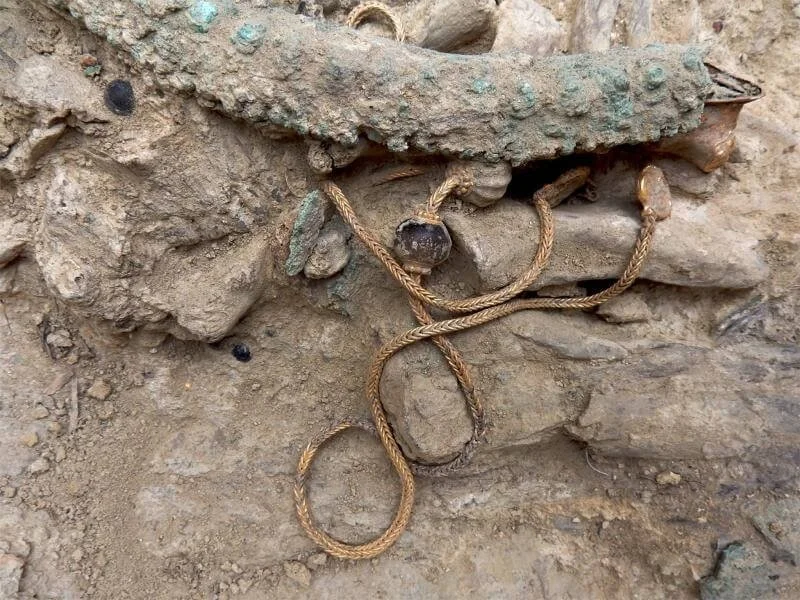Long-held assumptions regarding sandals have been completely disproved by a mysterious collection of footprints discovered in three different places throughout South Africa.
The ancient imprint appears to show a sandal mould (Image: Charles Heim)
The human footprints discovered on the Cape's coast are estimated to be 148,000 years old. And while it was widely believed that sandals were used in Jesus' day, it was not believed that they were worn in the Stone Age, which was many centuries earlier.
However, the newly discovered footprint reveals that people were wearing sandals with "rounded anterior ends, crisp margins, and possibly evidence of strap attachment parts." An international team of researchers lead by Charles Helm from Nelson Mandela University made the study public.
The fossils were found in South Africa (Image: Getty Images)
He wrote: “The purported tracks have dimensions that are broadly consistent with those of hominin tracks. “Track sizes appear to correspond to the tracks either of juvenile track-makers, or else small-adult hominin track-makers.
“While we do not consider the evidence conclusive, we interpret the three sites, as suggesting the presence of shod-hominin track-makers using hard-soled sandals. In the Middle Stone Age, a significant foot laceration might have been a death sentence.
Three separate sites were analysed by the experts (Image: Getty Images)
“Ichnological evidence from three palaeosurfaces on South Africa’s Cape coast, in conjunction with neoichnological study, suggests that humans may indeed have worn footwear while traversing dune surfaces during the Middle Stone Age. The hominin track record may be biased towards identification of tracks made by barefoot individuals, therefore the development of criteria for the identification of shod-hominin tracks should aid in future interpretation efforts.”
Years of professional notions that stone age people roamed around barefoot could be disproved by the data given. Museums all around the world are well renowned for their presentations of "early man," which depicts them without anything on their feet. However, they may now be compelled to change the displays.









